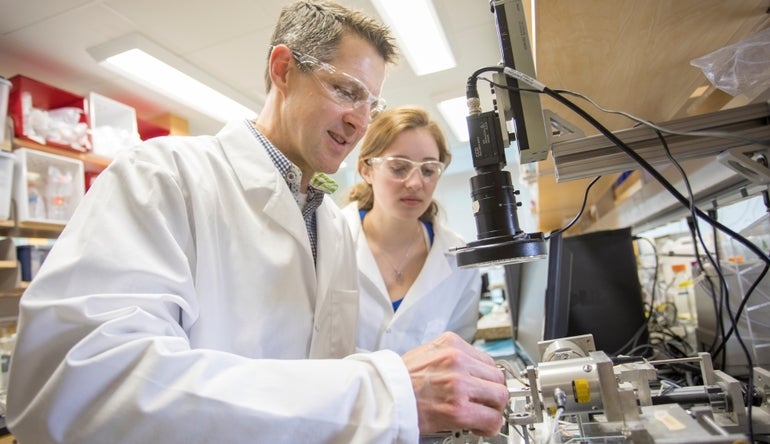Kristen Billiar, researcher and department head for biomedical research at Worcester Polytechnic Institute, has received a $430,000 grant from the National Institutes of Health to research how blood flow impacts engineered heart valves.
The research will investigate a new type of valve that has not yet been used in humans, seeking to address the limitations of currently available replacement heart valves.
The grant will fund a three-year project to expand the understanding of how cells are propelled throughout the body, according to a Tuesday release from WPI. The research, though focused on heart valves, could lead to a better understanding of the flow of cells that could advance other fields, such as wound healing and cancer.
“Existing heart valves have drawbacks, and there is hope that future valves made of engineered materials could be surgically implanted and become populated with a patient’s own cardiovascular cells,” Billiar said in the press release. “For that to happen, we need to know more about how or why cells populate a heart valve and whether there is anything that can be done to help those cells attach to and grow on a scaffold that is shaped like a valve.”
Some 18 WPI undergraduate students will participate in the research, which will examine fluid flows and cell proliferation.
Billiar has previously received similarly sized grants for research into cell death and different heart valve research.

